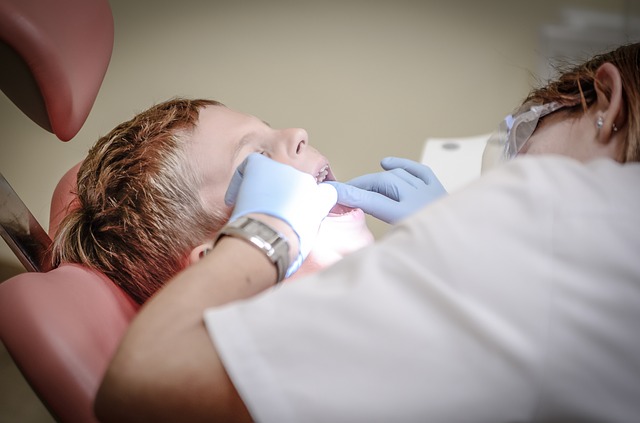
If dental anxiety is popular in adults, it’s even more common in children who don’t always know what’s happening or why they’re being poked and prodded. As a parent, you can help make dental visits more comfortable for your children by proactively addressing their fears and reservations.
Understanding Dental Anxiety
Dental anxiety is overwhelmingly frequent in children. According to one study, some level of dental anxiety was found to be present in 74.1 percent of children. Roughly 36 percent of children have moderate anxiety, 17 percent have a high level of anxiety, and more than 20 percent have severe anxiety. The study shows that the gender of the child has no significant bearing on the presence or severity of anxiety.
“Dental fear is a normal emotional reaction to one or more specific threatening stimuli within the dental situation, while [dental anxiety] denotes a state of apprehension that something dreadful will happen in relation to dental treatment, coupled with a sense of losing control,” a separate study on the topic explains. “Dental phobia represents a severe type of [dental anxiety] and is characterized by marked and persistent anxiety in relation either to clearly discernible situations/objects (e.g., drilling, injections) or to dental situations in general.”
4 Ways to Help Kids Deal With Dental Anxiety
As a parent, you want to address dental fear before it becomes dental anxiety, though this isn’t always possible. At the very least, you should do your best to prevent dental anxiety from progressing into full-blown dental phobia.
Here are some ways you can help your children fight against this:
- Practice Good Oral Care at Home
The best thing you can do for your child is to practice good oral hygiene with them at home. This is true for two reasons: (1) It reduces the likelihood that they’ll have dental issues – such as cavities, gum disease, or other problems that create the need for painful or invasive dental procedures. (2) The more a child grows accustomed to brushing teeth, flossing, and having their mouth/teeth poked and prodded, the less alarming it will be in a dental office.
- Choose the Right Dentist
The right dentist makes all the difference in the world. This is true for adults, but especially for children who need to feel safe.
“A great dental practice will want to do everything they can to make you feel comfortable during your dental visit,” Capstone Clintonville Dentist explains. “This includes being empathetic to your fears, using modern dental technologies to reduce drilling sounds, and providing you with safe anesthetic options to eliminate or significantly reduce pain.”
If you can choose the same dentist for yourself and your children, this is best. It further enhances the overall comfort level.
- Take Children Regularly
If you only take your child to the dentist once every couple of years, it’s going to be harder for them to get comfortable with the experience. If, however, they go every six months for a teeth cleaning, it becomes part of their regular, anticipated routine.
- Try Systematic Desensitization
A recent study of children ages five to 17 (with moderate dental anxiety) asked participants to look at photographs for a few minutes in the waiting room before being seen as patients. The photographs included positive images of dentistry and dental treatment procedures (as well as some neutral images that served as the control).
“The study concluded that viewing positive images of dentistry and dentists did result in short-term reductions in anticipatory anxiety in children, signifying that exposure is a successful intervention tool for children with dental anxiety,” counselor Emily Powell Bass writes. “If this visual exposure technique is used, it would be important to ensure that all materials are age appropriate.”
Whether formally or informally, the more you can desensitize children to the elements of dentistry that they fear, the less anxiety they should feel in the long run. The efficacy of this approach will depend on how much anxiety is already present and what the child’s past experiences have been.
Make Regular Dental Care a Priority
When it’s an emotional experience for everyone involved, it’s easy to stop taking your child to the dentist. You may figure it’s not worth it, so you fail to schedule their next teeth cleaning appointment. But before you know it, one missed visit will turn into two, which will turn into four, five, and six. And when it’s all said and done, you’re doing your child a disservice by ignoring the underlying issue and setting them up for bad oral hygiene in the future.
Your child isn’t alone in dealing with dental anxiety. You need to do something about it before it has adverse effects in other areas. Visit the right dentist – one who understands and acknowledges dental anxiety in children – and teach your child to face their fears.























